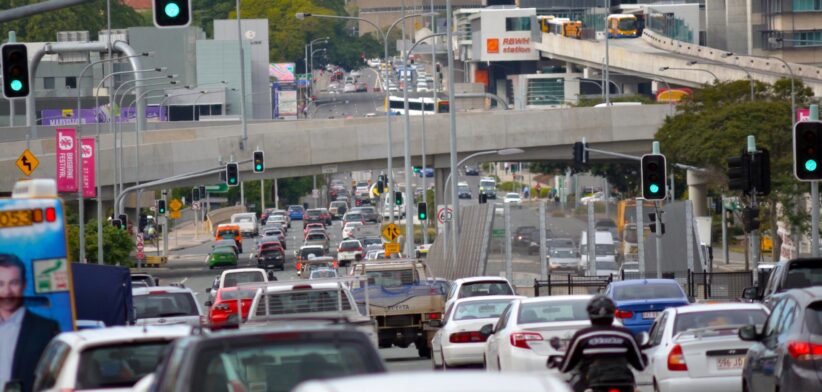The average Aussie is now spending more than hour commuting to and from work each day, with travel times busting the 60-minute mark over the past three years.
New data released in the Real Australian Commute Report 2025 found the average commute now took 64 minutes a day, an increase of 10 minutes since 2022, with workers covering 37 km daily, up from 32 km three years ago.
Lecturer in Transport Planning at The University of Melbourne Dr Paraic Carroll said cars remained the most popular way to get to work, with almost two in three Australians (64 percent) relying on private vehicles.
“However, trains have seen the strongest growth in usage, with three in 10 (30 percent) commuters now choosing rail, up from just over one in five (21 percent) in 2022,” Dr Carroll said.
He said other modes such as bus travel, walking, rideshare and trams had remained steady, while use of non-electric bikes and scooters had dropped from eight percent in 2022 down to 6 percent in 2025.
Dr Carroll said the research showed the cost-of-living crisis was continuing to weigh heavily on commuting choices, with more than seven in 10 Australians (71 percent) saying financial pressures were impacting the way they travel to work, consistent with 2022, while almost two in three (62 percent) still considered commuting to be “expensive.”
He said to manage costs, many were adjusting their behaviour, like finding the cheapest fuel deals available, relying more heavily on public transport or deliberately avoiding toll roads, which had emerged as a new strategy in 2025.
“A growing number of commuters are also embracing multi-modal journeys, mixing cars, trains, buses or walking to possibly save money.”
Dr Carroll said the survey highlighted how commuting patterns were closely linked to work choices and broader lifestyle decisions.
He said Australians now said they could tolerate up to 91 minutes of daily travel before reconsidering their job or where they live, a significant increase from just 62 minutes in 2022.
“This shift suggests that while commutes are getting longer, there may also be a growing acceptance that travel is a trade-off for housing and employment opportunities.”
Dr Carroll said, at the same time, flexibility remained a key priority, with nearly two in three respondents who were hybrid workers (64 percent) stating they would consider changing jobs if they were required to return to the office full time.








